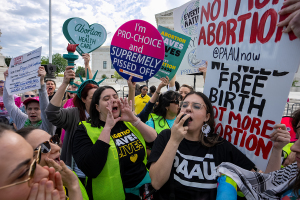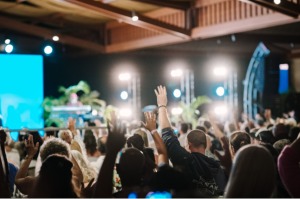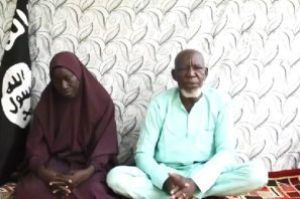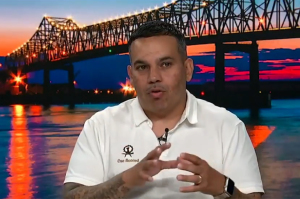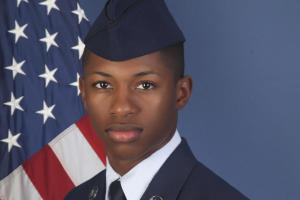NYC Churches Moving Closer to Being Granted Permission to Worship at Schools
NEW YORK – A U.S. federal judge heard arguments Friday in an ongoing legal battle over whether churches should be allowed to hold weekend worship services in New York City's public schools.
The Alliance Defense Fund, representing Bronx Household of Faith, argued against claims that letting churches worship at schools would amount to government endorsement of religion. Churches, the ADF contended, are not doing anything different from what student religious groups are already allowed to do.
"I think that Judge [Loretta] Preska is with us," said Jordan Lorence, senior counsel of the Alliance Defense Fund, in an interview with The Christian Post after the hearing.
The ADF has been representing Bronx Household of Faith since 1995, after its application to rent a public school building for Sunday services was rejected. In February 2012, it won a court order allowing churches to temporarily continue meeting for weekend services in public schools. The city's ban on worship services in vacant public school buildings, which has affected dozens of churches in the city, is unique in the nation.
During Friday's hearing in Bronx Household of Faith v. Board of Education of the City of New York, which lasted close to two hours and took place at the U.S. Courthouse in New York, Jonathan Pines, the Department of Education's attorney, argued that churches should not be allowed to use school space for worship because an outside observer would view such permission as the government lending its support toward a religion.
ADF's Lorence argued, however, that schools already provide students the opportunity to engage in religious practice by allowing them to hold Bible discussion groups, where students can sing hymns, pray together, and engage in Christian discussion.
Distinguishing between church services and religious student group meetings, Pines contended that churches actively advertise their gatherings as "worship" services. He pointed to several Bronx churches seeking to hold services in schools that have marketed their meetings on their websites specifically as worship services. The DOE has an obligation to keep worship out of school, the attorney maintained.
Lorence, meanwhile, noted that the only distinction between the student and church meetings is specifically the use of the word "worship."
The term is often part of church doctrine, the ADF attorney argued, and it is discriminatory to punish churches by not allowing them to use school space over the use of a word specific to their beliefs. Lorence also pointed out that nontheistic Eastern religions that do not use "worship" in their terminology are often given a pass on that same issue and allowed to use school space for their events.
Judge Preska acknowledged that outside observers walking by and seeing a church praying inside a school "would find it difficult to see government endorsement" of religion.
After the hearing, Lorence told CP that he is "cautiously optimistic" that the judge will rule in favor of the New York churches.
"I think the hearing went very well today," Lorence stated. "We are cautiously optimistic that Judge Preska will issue a permanent injunction against this policy that New York City has and allow religious groups to be able to use public schools on the weekends and weeknights on the same terms and conditions as everybody else."
Lorence noted that Mayor Mike Bloomberg has sided against churches in this issue.
"I think that there are school officials and also Mayor Bloomberg that unfortunately are clinging to a very absolute view of the Establishment Clause. They do not understand that the government should accommodate freedom of speech for religions. They view religions as something evil or bad that needs to be driven from the public schools. All we are asking is that we are treated the same as everybody else."
Pastor Bill Devlin of Manhattan Bible Church in Washington Heights, who has led protests and prayer vigils, been arrested, and fasted for well over a month in protest of the New York worship ban, believes there is a secularist agenda being driven by Bloomberg's administration to restrict religious freedom as much as possible.
Devlin, who was at Friday's courthouse hearing, offered as an example to CP the 10-year memorial ceremony of 9/11 last year, where Bloomberg prohibited religious expression.
"Mayor Bloomberg did not allow any Bible, no Scripture reading from any faith, no clergy, no prayers, no nothing, no expressions of faith at all," he shared.
"Even though mayor Bloomberg says 'We love people of faith, we want to support them' …. but then we have something like this," he added, referring to the Bronx Household of Faith court case.
"I think it is a continuous secularization, and desacralization of the city. I think that Mayor Bloomberg and Chancellor Walcott and some of the elected officials should put up signs at the Lincoln Tunnel and George Washington Bridge that say 'People of faith not welcome in New York City.'"
Devlin went further to call out the mayor on his hypocrisy – though he hosted a prayer breakfast expressing his gratitude to religious leaders earlier this year, he is also pushing efforts violating religious freedom.
"It's interesting because they are shaking our hand with the right hand, but then they are stabbing us in the back with the other," the Manhattan Bible Church leader remarked.
Notably, New York schools are grateful to churches that rent space and are dependent on the free lessons that students are offered on the weekends, as well as the books, book bags and other resources the congregations often provide, the pastor pointed out.
"They are tutoring the children for free," Devlin explained. "The [school officials] see it as a service to the community. They paint classrooms, they buy air conditioners, buy books and prove materials, notebooks, pens, crayons, pencils. I have not heard one complaint from a New York public school principal that they want these people to get out."
"Principals say they want to be connected to the social community. Many in the Bronx are from single-parent families, who are poor and live in housing projects, and kids don't have money for a book-pack, or notebooks and pens and pencils. But then a religious house of worship, be it Buddhist, Jewish, Muslim, Christian, will come along and provide it. Why wouldn't you love them?" he pondered.
Lorence of ADF asserted that church worship services are not less deserving of full protection under the First Amendment compared to other forms of religious expression.
"There is a distinction that the city makes, which the Supreme Court doesn't, between religious speech and religious worship," he noted. "They are both equally and fully protected under the First Amendment. Maybe someone can make a speech based on what the Bible says about helping the poor, or the death penalty, or something like that. That's not worship – but that's fully protected."
A court decision is expected by mid-June.
















